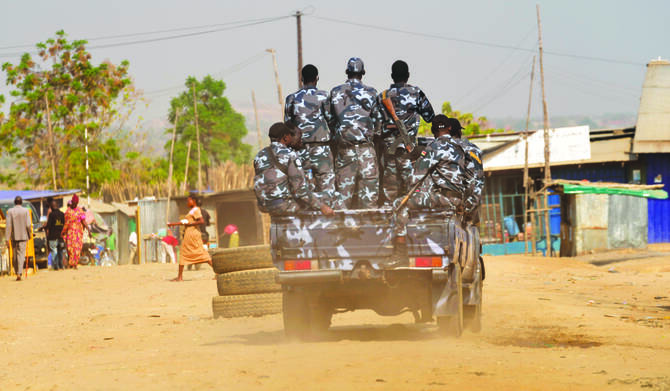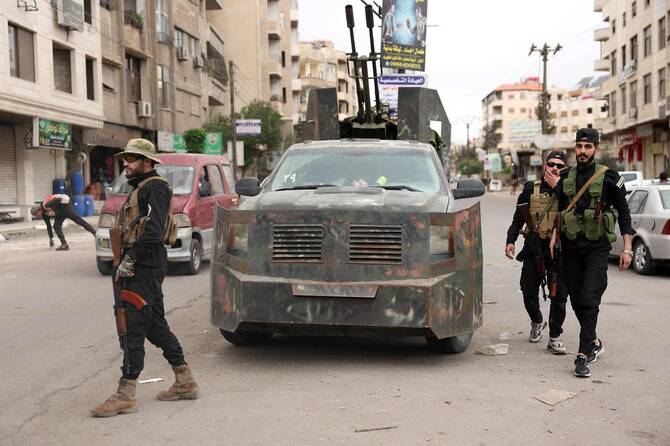NAIROBI: Misinformation and online hate speech are fueling panic and division in South Sudan at a time of acute political tensions that observers fear could drive the country back to war.
Ethnic divisions, particularly between the largest communities, the Dinka and Nuer, fueled the brutal civil war of 2013-18 in which some 400,000 people died.
After years of relative calm, there are worrying signs of renewed ethnic polarization, said Nelson Kwaje, chair of Digital Rights Frontlines, an organization based in the capital Juba that monitors hate speech and misinformation online.
FASTFACT
After years of relative calm, there are worrying signs of renewed ethnic polarization, said Nelson Kwaje, chair of Digital Rights Frontlines, an organization that monitors hate speech and misinformation online.
It comes as the 2018 peace agreement between President Salva Kiir and his long-time rival, First Vice President Riek Machar — who are respectively of Dinka and Nuer ethnicity — is hanging in the balance after Machar’s arrest on Wednesday.
He said mobile phone penetration in South Sudan is only 40 to 50 percent, and social media use around 10 percent at a conservative estimate.
However, those with access are often “the loudest voices,” and their messages spread through communities by more traditional means, helping poison the atmosphere.
Kwaje, speaking from Juba, said life in the city was still “relatively calm.”
But “social media disinformation and hate speech, which is very intense,” is stoking fears.
“There are rumors of assassinations, talk of retaliatory violence ... warnings about ethnic violence,” he said.
First, the brutal killing of an army general captured by members of a predominantly Nuer militia known as the White Army, and then a video appearing to show a young Dinka man being savagely treated by people with Nuer accents.
Ethnic polarization had reduced considerably in recent years, said Kwaje, but those videos have once again “radicalized people.”
“The polarization is obvious,” he said.
“If more incidents go in this direction, it will go to the next level of people taking up arms.”
“South Sudan has limited access to good information and free media. It creates a vacuum,” said Kwaje.
“The people who fill the vacuum are not all nefarious; many just want to share information to protect their community.
“But then you have actors who want to engage in fan engagement, and a small section who are politically motivated.”
He said it was hard to identify who was behind these political messages, but they were consistent and well-designed.
“When we see that level, we know there’s someone on a payroll,” said Kwaje.
“We have better shock absorbers now,” said Kwaje.
When the civil war broke out in 2013, there was an evident tribal divide “from day one,” he said.
The peace agreement that ended the war in 2018, “for all its faults,” engaged the international community, partially unified and disarmed Kiir and Machar’s respective armies, and installed an arms embargo that limited the supply of weapons to some extent, said Kwaje.
“Young people are also aware of the dangers of dividing along tribal lines. There is a lot of messaging about peace.
“But what pushes people to the edge is sharing content showing someone from your tribe being mistreated. Whether that content is factual or not, that immediately radicalizes you.”

























